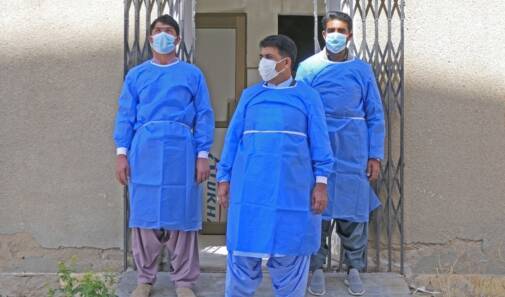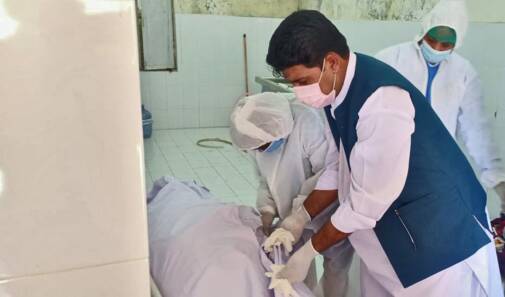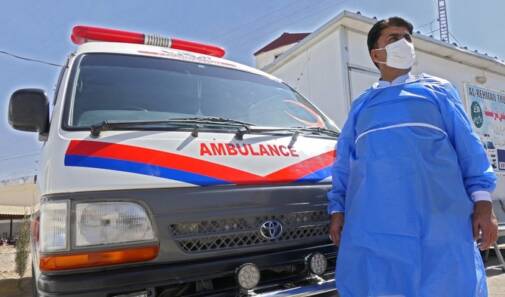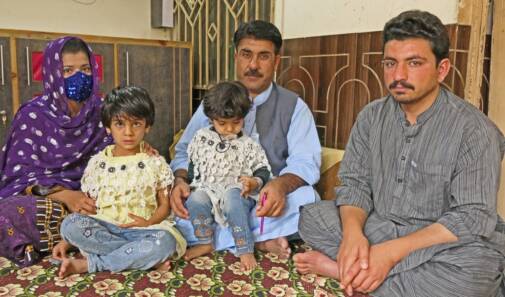In the weeks after reporting its first case of coronavirus infections in February 2020, families in Pakistan faced new restrictions in burying their dead.
As the coronavirus is highly infectious, and because it was believed in the first wave – with little scientific information available about the disease – that the virus remained active on corpses, relatives were scared of getting their hands on dead bodies.



As the disease ripped apart funeral rites, community members like Babul Khan Jattak stepped in and teamed up with relief efforts and local officials.
Since Pakistan’s first infection wave, the 41-year-old has been leading the Coronavirus Rescue Operation in Quetta, the capital of the Balochistan province that lacks medical services.
“I cannot forget the horrific beginning of the coronavirus pandemic in Pakistan,” he told Arab News. “Dozens of people were dying and even their blood relatives were afraid of touching their bodies.”



Jattak, who for two decades worked for Edhi Foundation, a Pakistani charity that operates the world’s largest volunteer ambulance services, formed a dedicated team of 45 that ferried coronavirus patients from distant areas of the province to clinics and buried those who did not survive.
“I helped the bereaved families bury their loved ones who died due to the coronavirus without charging them anything,” he told Arab News. While the official figures show that 377 out of 35,500 people who had contracted covid-19 in Balochistan had died, Jattak said he had personally interred more than 600 people.
Determined and undeterred
Jattak and his team traversed the dangerous environment undeterred by the risk. And the paramedic refused to give up despite testing positive twice for the virus and developing medical complications.



“My job will continue,” he said, “until this virus is fully eliminated from the country.” His family has many times asked him to quit but to no avail.
“God has given him a brave soul and he cannot stop serving the people at such a critical juncture,” Jattak’s daughter, who only identified herself by her first name, Mahnoor, said.



Dr. Noor Muhammad Qazi, the director-general of the provincial health department, called the Coronavirus Rescue Operation leader an “unsung hero.” Jattak’s teammates see him the same way.
For Abdul Rehman, a 27-year-old member of the task force, it was his senior’s example that made him stay on duty. “When I tested positive for covid-19, my family put immense pressure on me to quit the job,” he said. “I refused to give up the sacred duty since I had seen Babul Khan Jattak in the field and how he helped people with dedication.”
Following the omicron-driven fifth wave of the pandemic hitting the country, over 100 million people have been vaccinated against covid-19.
What do you think of this story? Let us know in the comments section below.


















